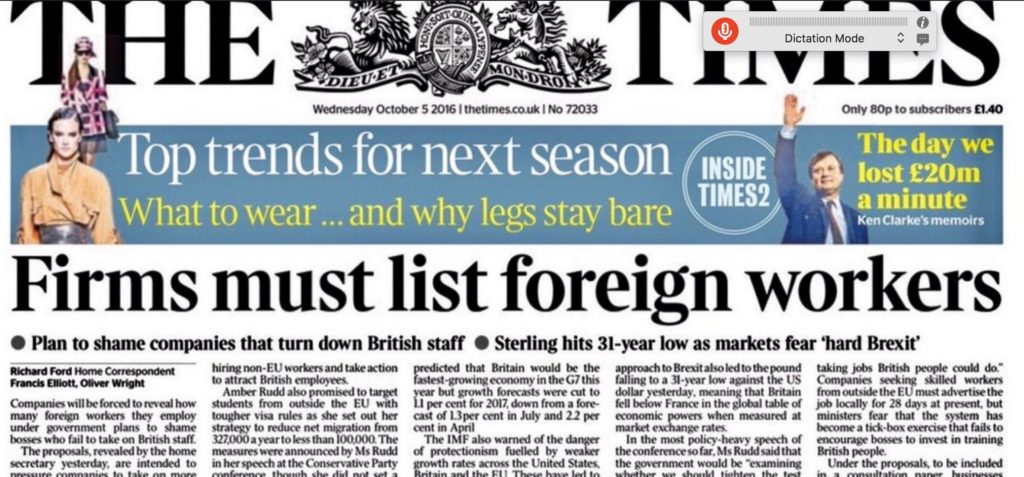Martin Wolf has a typically insightful column in today’s FT (paywall) in which he argues that the only possible interpretation of Theresa May’s speeches to the Tory conference last week is that the country is on “a timetable to exit not just from the EU, but from the preferential terms of access to Eu markets on which investors, both foreign and domestic, rely. This would be a hard Brexit”.
Furthermore, he continues,
“UK trade negotiators simply could not negotiate offsetting agreements with the rest of the world. This is partly because no such possibility plausibly exists , since the EU takes almost half of the UK’s exports. It is also because the UK will not be deemed a credible negotiating partner until its EU deal is finalised. By March 2019, then, the UK is likely to find itself without preferential access to any markets.”
If you think that this is a prospect too horrendous to contemplate, then join the club. It seems incredible that a rational government could contemplate it either.
So what’s going on?
Discussing this with a colleague over lunch, he suggested an alternative explanation. It’s based on the premise that Theresa May is a rational actor who understands the logical consequences of current government policy. But she also knows that in the current febrile atmosphere, rational argument and policy-making is impossible. The failure of the sky to fall in after the Brexit vote has led to euphoria among Brexiteers and fuelled their hallucinations about the possibilities for a newly-liberated UK. (They remain unmoved by the precipitous fall in the value of the pound, arguing that it gives the UK a trading/export advantage and will eventually be seen as a good thing.)
So (my colleague continues), the thinking behind May’s conference speeches is that she needed to talk up the probability of a ‘hard’ Brexit in order to accelerate the arrival of bad news from all quarters and not just the currency markets. This will accelerate as the months go on, until it will be obvious to a majority of the population that a hard Brexit is not such a good idea after all. (The fanatical Brexiteers, nutters like Liam Fox, are — like Trump supporters — beyond the reach of logic or evidence, but they’re a minority). So, in a year or so, when the full awfulness of Brexit becomes manifestly clear, the way will be open for a cautious, pragmatic PM to say that, regretfully, the government will have to modify its position to safeguard the interests of the United Kingdom.
Howzat for a conspiracy theory, eh?


